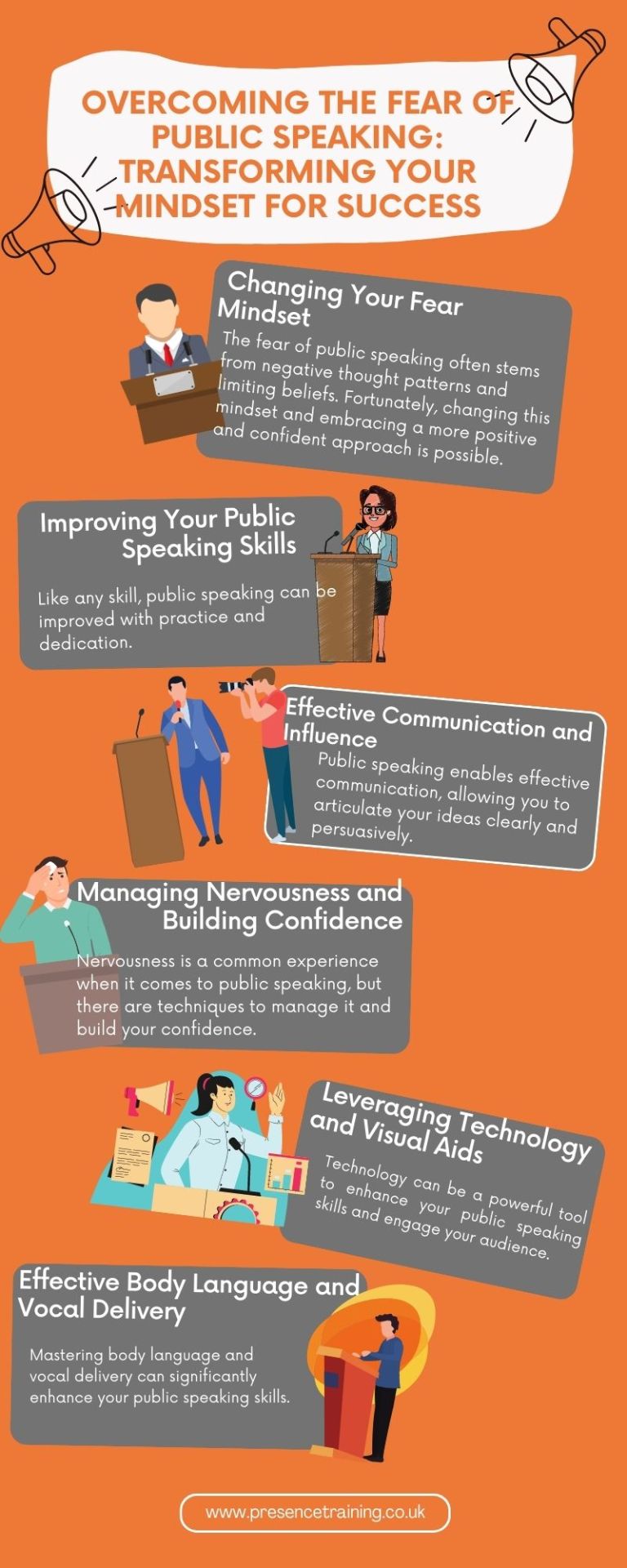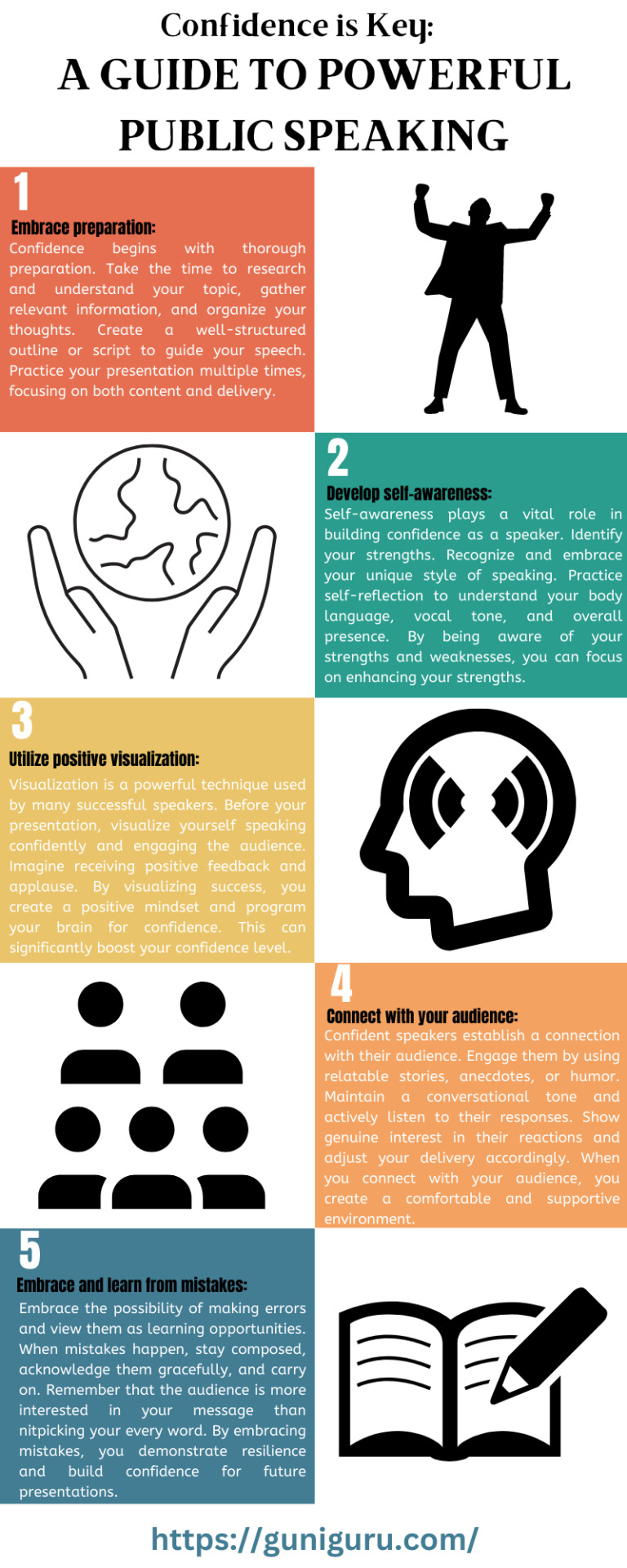#public speaking tips
Text
public speaking tips
practice practice practice so you know your speech super well
practice in front of a mirror or on video so you know how you look
remember to stay confident
make your notes clear
remember to look up
make eye contact with your audience
2 notes
·
View notes
Text
In Defense of Public Speaking
Is it just me or do you think public speaking is so much easier than having conversations with people, one to one?
This may be an unpopular opinion because I often hear the reverse. As a college student, I'm always amazed when people who are quite talkative in class struggle when it comes to making a speech in front of everyone.
To me, public speaking gives you the element of control. Unless I am making an impromptu speech, everything I say is calculated, planned, and rehearsed. Every word is thought out in advance and the tone and tempo of the speech is something I can spend days perfecting before my presentation. Perhaps it is the perfectionist in me speaking, but I believe it's beautiful. Public speaking is more predictable than speaking one-on-one, which, to me, has numerous variables that can't be calculated in advance.
But whether I am delivering a rehearsed speech or making an impromptu one, there's a sense of peace in knowing that I have an allotted time to express myself and that I will be able to use it to its fullest. No one is going to interrupt me, at least not usually, and even if interruptions do occur, that's okay. As a speaker, I have control of the room and I can navigate the situation with poise to bring my audience's attention back to me. This is the "default"; etiquette commands people to be respectful, quiet, and to listen carefully during a speech. In normal conversations, it's less of a requirement and in my experience, most people are horrible listeners.
In public speaking, questions and comments won't be asked until the very end. During Q&A time, people are more likely to think twice about what they're going to say. This may be due to exercising careful listening skills or be a result of fearing that they'd misspeak or voice something unintelligent in front of the crowd.
Additionally, there's an appreciation for pauses when making public speeches. Rather than being perceived as awkward silences, they are seen as a public speaking strategy. When I pause during my speech, people won't see it as an opportunity to interrupt and shove their words down my throat. Instead, they'll think, "Oh. A dramatic pause. I wonder what she will say next."
On the other hand, when you converse with someone, you must repeatedly make quick decisions about how you're going to respond to the other. There's a back-and-forth. Now, don't get me wrong, I love dialogue and love listening to others share their thoughts and discussing with them! I would not want to talk to a brick wall.
But with many people, I try to plan carefully before I respond to them. There are a lot of steps involved in the "art of conversation", at least for me. First, I have to actively listen to the other person. Then, I have to interpret the information they're telling me. Sometimes, this means simply remembering what they said. Sometimes, it means analyzing, giving sympathy, getting rid of personal biases, and trying to understand the many nuances of their words and truly seeing them as a person. Lastly, I have to carefully choose the words that I think would be best for the person and the situation. With people I know and trust, the last step is easy. But with most people, they're not. It might take me a second to reply. I might pause as I talk.
Sometimes, this silence is seen as "Oh, she just doesn't have anything to say." But no. I'm simply thinking carefully. And then they move on to a new topic while I'm still over here, thinking about the old one. This is especially an issue with people who aren't patient or have very low attention spans.
I care deeply about how I communicate my ideas, and I like to choose and calculate my words before speaking. I also like to give my whole attention to a person when they are speaking. I won't start thinking about my reply until I know for sure that you are done saying what you wish to me. So please, do give me one second to collect my thoughts to form a reply. For this reason, I like to speak slowly when I am conversing and if you make me feel like I have to rush to get my words out, I will get frustrated and feel as if you are not giving my thoughts the respect and consideration that I am giving yours.
I listen more than I talk when I'm in conversations with people... but public speaking? My speeches tend to be longer than I originally planned. I love it.
#public speaking#public speaking skills#public speaking tips#I love speeches#social anxiety#personal rant
2 notes
·
View notes
Text
Empower Managers With Essential Communication Skills for Effective Leadership

In the realm of successful leadership, executive communication training stands as a cornerstone for managers. Equipped with these vital skills, managers can forge strong connections with their teams, adeptly navigate conflicts, deliver constructive feedback, and propel productivity to new heights. Let’s dive into the significance of communication training in ensuring effective leadership.
Listening Skills
Listening is the foundation of good communication. Communication training teaches managers invaluable soft skills like active listening, empathetic leadership, and workplace team building. By fully understanding employees’ ideas and concerns, managers can make them feel heard and address issues better.
Feedback Skills
Quality feedback is essential for improvement. Through effective communication training, managers learn to deliver feedback constructively by focusing on observable behaviors, not personal attacks. They provide regular, specific praise to reinforce good practices and frame constructive criticism as wanting employees to develop, not punitive measures. This motivates staff and builds trust.
Conflict Resolution
Disagreements are inevitable in workplaces. Proper communication skills help managers resolve conflicts before they escalate. Training in nonviolent communication provides tools to discuss issues respectfully without causing offense or escalating the situation. Managers also learn to find points of agreement, compromise, and coach disputing employees to resolve conflicts themselves through open dialogue. This maintains team harmony.
Interpersonal Skills
Communication training develops managers’ emotional intelligence — their self-awareness and capacity to understand others’ perspectives. Coursework in listening, constructive feedback, and conflict management also helps managers provide support employees need. By building rapport, managers inspire staff’s best work.
Crystal Clear Direction
Without clear direction, employees feel frustrated and produce inferior work. Communication training teaches managers to create inspiring vision statements, set clear expectations by aligning tasks to objectives, and explain the rationale behind their decisions. By precisely and empathetically communicating their goals, managers can ensure their teams stay motivated and focused.
Presentation Skills
Managers speak to executives, clients, and staff daily. Communication training builds skills for impactful public speaking and presentations. From proper body language to vocal variety, it teaches managers to powerfully deliver messages and handle tough Q&A. These skills allow managers to confidently articulate ideas, engage audiences, and persuade stakeholders.
Written Communication
Effective written communication — be it in emails, reports, or messages — is paramount. Communication training equips managers with the skills to craft clear and tactful messages, minimizing the risk of misinterpretation. By learning more about business writing, editing, and proofreading, managers elevate their written communication to new heights of readability, precision, persuasion, and professionalism. This proficiency facilitates the efficient and effective dissemination of policies, feedback, organizational vision, and other intricate information, fostering seamless communication within the workplace.
Ongoing communication training for managers is invaluable for anyone leading a team, no matter how big or small. Education in listening, constructive feedback, conflict management, relationship-building, clear direction, presentations, and written communication provides crucial skills for managers to lead organizations successfully in our communication-driven world.
Ref: https://medium.com/@moxieinstituteinc/empower-managers-with-essential-communication-skills-for-effective-leadership-6bb28698d8eb
#public speaking tips#public speaking skills#executive communication training#speaking skills#communication skill training
0 notes
Text
Business or Pleasure: Traveling for Work
The Pleasure of Traveling for Work:
I must confess that I love travelling, and when I can combine it with work, it’s even more enjoyable. I’ve had the opportunity to travel to various destinations, including Durban and Cape Town, to conduct training workshops. These experiences have not only allowed me to share my knowledge but also to connect with people from different backgrounds and…

View On WordPress
#Building Confidence for Public Speaking#Confidence and Public Speaking#Effective Public Speaking#Effective Public Speaking for Entrepreneurs and Business Owners#Effective Public Speaking Techniques for Confidence Building#Engaging Audience in Public Speaking#How to Engage Your Audience in Public Speaking#How to Improve Public Speaking Skills for Beginners#improve public speaking#Overcoming Fear of Public Speaking#Posture and Public Speaking#Public Speaking and Body Language#Public Speaking and Confidence Building#Public Speaking and Leadership Skills#Public Speaking and Stage Presence#Public Speaking and Voice Modulation#Public Speaking for Beginners#Public Speaking for Sales and Marketing Professionals#Public Speaking for Shy People#public speaking skills#Public Speaking Techniques#Public Speaking Tips#Public Speaking Tips for Overcoming Fear and Anxiety#The Importance of Posture in Public Speaking#Voice Projection and Public Speaking
0 notes
Text
How do you treat fear of public speaki
Introduction Public speaking fear, or glossophobia, is a pervasive apprehension that can significantly impact individuals both personally and professionally. The fear of speaking in front of an audience can hinder career advancement, limit personal growth, and create unnecessary stress. In this blog post, we will explore effective strategies and treatments for overcoming the fear of public speaking fear, offering a roadmap to transform anxiety into assurance.
Understanding Public Speaking Fear:
Public speaking fear is a common form of performance anxiety that manifests when individuals are required to speak or present in public. The fear often stems from concerns about judgment, scrutiny, or the possibility of making mistakes in front of an audience. It's crucial to recognize that this fear is normal and experienced by many, but addressing it head-on is key to personal and professional development.
Strategies for Treating Public Speaking Fear:
Education and Awareness:
Understanding the root causes of public speaking fear is the first step towards treatment. By recognizing that fear is a natural response to perceived threats, individuals can begin to reframe their mindset and approach public speaking with a more constructive perspective.
Gradual Exposure:
Gradual exposure to public speaking situations can desensitize individuals to the fear over time. Start with smaller, less intimidating settings and progressively work towards larger audiences. Each successful experience builds confidence and diminishes anxiety.
Practice and Preparation:
Thorough preparation and practice are crucial elements in overcoming public speaking fear. Familiarity with the content and delivery reduces uncertainty, boosting confidence and mitigating anxiety. Rehearse in front of a mirror, record yourself, or seek feedback from trusted friends or colleagues.
Visualization Techniques:
Visualization involves mentally rehearsing a successful presentation. By vividly imagining a positive outcome, individuals can alleviate anxiety and build confidence. Visualization can be practiced regularly to create a positive association with public speaking.
Positive Affirmations:
Adopting positive affirmations can help rewire negative thought patterns associated with public speaking fear. Repeat affirmations such as "I am a confident speaker" or "I embrace public speaking challenges" to instill a positive mindset.
Breathing and Relaxation Exercises:
Learning and practicing deep breathing and relaxation techniques can help manage physiological responses to anxiety. Controlled breathing before and during a presentation calms the nervous system and promotes a sense of calm.
Public Speaking Courses and Workshops:
Joining public speaking courses or workshops provides structured guidance and a supportive environment for individuals to practice and improve their speaking skills. These settings offer constructive feedback and valuable tips from experienced speakers.
Professional Coaching:
Seeking guidance from a public speaking coach can provide personalized strategies to address specific challenges. Coaches offer tailored feedback, practical advice, and emotional support to help individuals build confidence and overcome fear.
Support Groups:
Joining public speaking or Toastmasters groups creates a supportive community where individuals can share experiences, receive constructive feedback, and gain encouragement from others who have faced similar challenges.
Mindfulness and Mind-Body Techniques:
Practices such as mindfulness meditation and yoga can enhance self-awareness and reduce anxiety. These techniques help individuals stay present in the moment, fostering a calmer and more composed demeanor during public speaking engagements.
Conclusion:
The fear of public speaking is a common challenge, but it is one that can be effectively treated with a combination of education, gradual exposure, practice, and supportive resources. By adopting these strategies and approaches, individuals can transform their fear into a powerful tool for personal and professional growth. Embracing the journey from anxiety to assurance not only enhances public speaking skills but also contributes to overall self-confidence and resilience in facing life's challenges.
0 notes
Text
youtube
Welcome to Episode 2 of our empowering series on "The Art of Public Speaking". In this episode, we'll delve into the essential aspects of building confidence and conquering shyness to become a more effective communicator. 👉 Subscribe to my channel to stay tuned: / @wakethefup22
In this episode, we're going to share valuable insights, practical tips, and inspiring stories that will boost your self-assurance and help you conquer your shyness. If you're a seasoned speaker looking to refine your skills or a beginner striving to overcome your shyness, this episode is packed with practical tips and techniques to help you succeed.
Here Lamide Diji shares his personal experiences and insights into how anyone, even introverts, can transform themselves into fantastic speakers in public. He delves into the importance of habitually taking uncomfortable actions and pushing their boundaries to build confidence. Lamid emphasizes the significance of positive visualization, embracing curiosity, and maintaining a positive environment to reduce self-doubt and anxiety when approaching strangers.
The conversation covers the ups and downs of entrepreneurship, with Lamid sharing his perspective on emotional control and the balance between stoicism and embracing emotions. He believes that entrepreneurship is not just about growth but also about enjoying the journey and having fun in the process.
Lamide Diji, a master in helping individuals find their voice and speak with confidence, shares his inspiring transformation from a shy introvert to a dynamic public speaker. His approach to habitual uncomfortable action is a key element, along with personal development and the joy of embracing life's adventures.
#the art of public speaking#public speaking#public speaking tips#building confidence and overcoming shyness#how to overcome shyness#overcome shyness#how to be confident#Youtube
1 note
·
View note
Text
youtube
Welcome to Episode 2 of our empowering series on "The Art of Public Speaking". In this episode, we'll delve into the essential aspects of building confidence and conquering shyness to become a more effective communicator. 👉 Subscribe to my channel to stay tuned:
In this episode, we're going to share valuable insights, practical tips, and inspiring stories that will boost your self-assurance and help you conquer your shyness. If you're a seasoned speaker looking to refine your skills or a beginner striving to overcome your shyness, this episode is packed with practical tips and techniques to help you succeed.
Here Lamide Diji shares his personal experiences and insights into how anyone, even introverts, can transform themselves into fantastic speakers in public. He delves into the importance of habitually taking uncomfortable actions and pushing their boundaries to build confidence. Lamid emphasizes the significance of positive visualization, embracing curiosity, and maintaining a positive environment to reduce self-doubt and anxiety when approaching strangers.
The conversation covers the ups and downs of entrepreneurship, with Lamid sharing his perspective on emotional control and the balance between stoicism and embracing emotions. He believes that entrepreneurship is not just about growth but also about enjoying the journey and having fun in the process.
Lamide Diji, a master in helping individuals find their voice and speak with confidence, shares his inspiring transformation from a shy introvert to a dynamic public speaker. His approach to habitual uncomfortable action is a key element, along with personal development and the joy of embracing life's adventures.
Our expert speakers will share their personal experiences, insights, and actionable advice to help you develop the confidence you need to shine in any public speaking situation.
Whether you're preparing for a job interview, delivering a presentation at work, or just want to become a more engaging communicator in social settings, this episode has something for everyone. Join us on this journey of personal growth and self-discovery, and unlock your true potential as a public speaker.
Towards the end of the video, Lamid and the host take on a pull-up challenge to demonstrate the importance of small steps and persistence in personal growth.
If you found this video helpful, please give it a thumbs up, subscribe to our channel, and hit the notification bell to stay updated with our upcoming episodes. Feel free to share your thoughts, questions, and personal experiences in the comments section. Let's learn and grow together on this exciting journey toward mastering the art of public speaking!
#the art of public speaking#public speaking#public speaking tips#building confidence and overcoming shyness#overcome shyness#how to be confident#wake the f up#confidence building#public speaking skills#presentation confidence#effective communication#speak with confidence#public speaking techniqe#self confidence development#public speaking practice#public speaking for beginners#Youtube
1 note
·
View note
Text
These are Public Speaking traits of Professionals
Hi dear one, do you know the public speaking traits that separate professionals from amateurs?
Click on the photo below to watch the 4 Public speaking tips that separate Professionals from Amatuers.

View On WordPress
0 notes
Text
Help your kids overcome stage fright and excel at public speaking with these 10 valuable tips! Check out TalentGum's latest blog post to learn more.
#Conquering Stage Fright#Tips for Kids#Public Speaking Anxiety#Overcoming Fear#Boost Confidence#Communication Skills#Public Speaking Tips#Kids Confidence Building#Stage Performance#TalentGum
1 note
·
View note
Text
How to Improve Your Public Speaking Skills
Public speaking is a skill that holds immense importance in today’s world. Whether you are a student, a professional, or an entrepreneur, the ability to communicate effectively in front of an audience can open doors to countless opportunities. From delivering impactful presentations to persuading others with your ideas, mastering public speaking skills can significantly enhance your personal and…

View On WordPress
#guide to public speaking#how can i get better at public speaking#how do i improve my public speaking#how to improve your public speaking skills#improve my public speaking skills#improve public speaking skills#public speaking guide#public speaking tips
1 note
·
View note
Text

Overcoming the Fear of Public Speaking Transforming Your Mindset for Success
0 notes
Text

Confidence is Key: A Guide to Powerful Public Speaking
Confidence is the key to powerful public speaking, and in this blog post, we have explored essential points and strategies to help you become a confident speaker. Starting with thorough preparation and self-awareness, practicing visualization and mastering non-verbal communication. Connecting with the audience, embracing mistakes, and seeking constructive feedback were highlighted as crucial steps toward building confidence. Additionally, if you prefer a more structured and guided approach, there are numerous online video courses available that can help you become a confident speaker. These courses often provide comprehensive lessons, practical exercises, and valuable tips from experienced speakers. They cover various aspects such as overcoming stage fright, honing delivery skills, and developing engaging content. Investing in an online video course can offer personalized instruction and allow you to learn at your own pace, further enhancing your journey toward becoming a confident speaker.
0 notes
Text
Are You An Introvert Or an Extrovert? Find Out Who Makes A Better Speaker
Do you get nervous when you have to speak in public? Do you get stage fright? If you do, you are not alone. It is estimated that 73% of the population suffers from some form of stage fright. This means that when it comes to public speaking, most people are introverts. But you can overcome that fear by having a mentor. Get in touch with a public speaking coach today at ReigniteYou.
While it is true that some of the greatest speakers in history have been introverts, that does not mean that introverts make better speakers than extroverts. Several studies have shown that extroverts make better speakers than introverts. So, if you are an introvert who is looking to improve your public speaking skills, don’t despair! You can learn to speak like an extrovert.

The Different Types of Speakers
There are two broad types of speakers - introverts and extroverts. Introverts tend to be more shy, reserved and thoughtful in their approach to public speaking. They often think through their ideas and speeches before saying them out loud. They may also take longer to develop their ideas and find the right words to articulate them.
In comparison, extroverts are more confident and outspoken. They are often willing to experiment with ideas and come up with unorthodox ways of communicating. This allows them to connect to their audiences better, as they can communicate their ideas more dynamically and engagingly.
Who Makes a Better Speaker?
Numerous studies have shown that, when it comes to public speaking, extroverts make better speakers than introverts. This is because extroverts are generally more confident, articulate and comfortable in front of an audience. Furthermore, they tend to be more engaging and dynamic in their approach to public speaking. Finally, extroverts can think on their feet, which allows them to adjust their approach as the audience’s reactions change.
The Pros and Cons of Being an Introvert or Extrovert Speaker
However, there are both pros and cons to being either an introvert or an extrovert speaker. Introverts are often thought to be more thoughtful and measured, which can be a major advantage when it comes to delivering clear and cogent arguments. On the other hand, extroverts may struggle with taking the time they need to arrange their ideas properly, leading to a more scattered and disorganized presentation. This can make the ideas less coherent and meaningful for the audience.
How I Want To Become Successful Speaker
One of the best ways to be a more successful speaker is to focus on developing your strengths rather than trying to fix your weaknesses. If you are an introvert, focus on honing your thoughtfulness and analytical skills. Try to develop a better understanding of the audience and their needs and work to tailor your content accordingly. If you are an extrovert, focus on developing your confidence, finding the right words to articulate your ideas and learning to connect with your audience on an emotional level.
Conclusion
Whether you are an introvert or an extrovert, the key to success in public speaking lies in developing the unique strengths that you bring to the stage. With focus and practice, anyone can learn to be a better speaker. As long as you find what works best for you, it is possible to become a great speaker - no matter what type of speaker you are. You can also choose the best public speaking course online to boost your skills. You can do this by registering with ReigniteYou. So why wait? Join today!
0 notes
Text
How Getting Professional Speaking Training Can Help You Improve Your Communication Skills

Strong communication skills are invaluable for success in business, leadership, and life. Yet many professionals realize there’s room for improvement to persuasively convey ideas, motivate teams, and connect with audiences. If you want to dramatically boost your communication abilities, consider investing in professional speaking training.
Build Critical Speaking Skills
A formal public speaking course provides structured ways to develop clear messaging and confident delivery of ideas. Working one-on-one with a speaking coach lets you target improvement areas with constructive feedback. Repeated practice and refining presentations in a safe environment are proven ways for fast improvement.
An effective speaker training program should expand key skills like:
Organizing thoughts logically so audiences follow easily
Crafting messages for clarity and memorable impact
Understanding audience needs, motivations, and objections
Using storytelling and data for persuasive impact
Leveraging visuals effectively without overloading your slides
Projecting vocal variety and enthusiasm
Exhibiting confident body language and stage presence
Managing speaking anxiety and connecting with audiences
Apply Insights Across Communication Channels
While focused on in-person presentations, professional speaking training has applications across all communication channels including written, digital, social media, and more.
For example, storytelling techniques can make your emails or blog posts more compelling. Overcoming stage fright relates directly to calming your nerves before big video conference calls. Even simple vocal modulation can convey extra confidence and friendliness during regular conversations.
Powerful communication requires understanding the minds on the receiving end. Speaker training expands this emotional intelligence of what makes audiences tick. Use this knowledge to tailor communications for maximum understanding and likability.
Build a Personal Brand
Great communicators often become magnetic leaders and respected voices in their field. Invest time in building your communication skills through professional speaking training and watch your personal brand rise.
Consider these opportunities that open through public speaking proficiency:
Becoming the go-to choice for hosting company town halls or leading training seminars
Closing more sales deals through polished persuasiveness
Pitching ideas boldly and confidently to senior management
Representing your company as a speaker at prominent industry conferences
Establishing credibility with clients and business partners
Launching a professional website, blog, or podcast
Exceptional communication skills make achieving professional dreams and ambitions more attainable. Identify those big goals that would benefit from polished and engaging speaking skills. Then commit to releasing your inner influential communicator with the right speaker training for you.
Ref: https://moxieinstituteinc.blogspot.com/2024/04/how-getting-professional-speaking.html
#public speaking skills#executive communication training#speaking skills#public speaking tips#communication skill training
0 notes
Text
The Power of Posture to Improve Your Public Speaking
The Power of Posture: How to Improve Your Public Speaking Skills
As a passionate public speaker, I’m excited to share my thoughts on how to improve your public speaking skills, even if you don’t have the time, money, or inclination to attend a workshop. One crucial aspect of public speaking is posture, which can make or break your confidence and credibility on stage.
The Importance of…

View On WordPress
#Building Confidence for Public Speaking#Confidence and Public Speaking#Effective Public Speaking#Effective Public Speaking for Entrepreneurs and Business Owners#Effective Public Speaking Techniques for Confidence Building#Engaging Audience in Public Speaking#How to Engage Your Audience in Public Speaking#How to Improve Public Speaking Skills for Beginners#improve public speaking#Overcoming Fear of Public Speaking#Posture and Public Speaking#Public Speaking and Body Language#Public Speaking and Confidence Building#Public Speaking and Leadership Skills#Public Speaking and Stage Presence#Public Speaking and Voice Modulation#Public Speaking for Beginners#Public Speaking for Sales and Marketing Professionals#Public Speaking for Shy People#public speaking skills#Public Speaking Techniques#Public Speaking Tips#Public Speaking Tips for Overcoming Fear and Anxiety#The Importance of Posture in Public Speaking#Voice Projection and Public Speaking
0 notes
Video
youtube
4 Public Speaking Tips To Hook The Audience | Speak With Confidence | ChetChat
Watch This Video For How To Become Confident Public Speaker | 4 Public Speaking Tips For Beginners | ChetChat English.
5 Body Language Tips to Develop an Attractive Personality - https://www.youtube.com/watch?v=-iQEzSd9QUQ
Join this channel to get access to perks: https://www.youtube.com/channel/UCjnJwlSN4_FuoE-6RWX_Eaw/join
Missed my previous videos, catch them here -
Valuable Lessons From Stephen Curry - https://youtu.be/6MAX0ZcAIWQ
How To Stop Overthinking? - https://youtu.be/ydGS8JXYLjw
15 New Foreign Words - https://youtu.be/byUyOKlQ8v8
5 Self Discipline Habits - https://youtu.be/ZlHtL8rSPaE
5 Books You Must Read - https://youtu.be/kEIgr7aAwQU
How to Make People Like You - https://youtu.be/FuL6c0Xcog0
How To Take Charge Of Your Life - https://youtu.be/BYae5NgjYiI
Money Management Tips - https://youtu.be/TS6ies7tDvI
5 Movies To Impact Your Personality - https://youtu.be/FXjGwe_kVtE
How To Deal With Haters - https://youtu.be/ZovpzoLHIAU
My Morning Routine - https://youtu.be/sKamYAV9aM4
How To Improve Your Handwriting - https://youtu.be/xsJVDNCfbJw
At The Restaurant Conversation - https://youtu.be/gUxiVEWtxPQ
How To Fall Asleep Faster - https://youtu.be/4_PKaWO4hPA
How To Become Topper In Every Field - https://youtu.be/BMkajX9qNxE
How To Write Formal Letter - https://youtu.be/92M2w3vFFnE
Fastest Way To Cover The Syllabus - https://youtu.be/5HpTTLrnqCI
How To Choose The Right Career? - https://youtu.be/zGCY8cd1GFQ
First Impression Tips - https://youtu.be/29s5sZKnufY
8 Time Management Tips - https://youtu.be/iPSS0sIPvJk
How To Remember History Dates - https://youtu.be/-OVV8izmZug
How To Work Less And Achieve More - https://youtu.be/vhMV9fV7dUw
How To Wake Up Early In The Morning - https://youtu.be/rCibHarnYyQ
Stop Saying "I Don't Know" - https://youtu.be/D-rPg1cBLpU
Learn English Through Movies - https://youtu.be/onU7vbZa9n0
5 Body Language Tips - https://youtu.be/-iQEzSd9QUQ
Secret Tips To Avoid Sleep While Studying - https://youtu.be/bVPxKdlQzLo
10 Smart English Phrases - https://youtu.be/QPd6x-Y7INg
Social Media Detox - https://youtu.be/m0o0lQQ9OaI
Watch my most popular videos here -
Stop Using These Words - https://youtu.be/5f_4Wx50Qjk
How to Introduce Yourself - https://youtu.be/TwZ7LgrPwR0
How To Concentrate On Studies - https://youtu.be/_GfSklwp_k4
How to Study Smart Not Hard - https://youtu.be/V3mgWT984xQ
Don't Use These Words - https://youtu.be/bIlZu7keh2M
10 Daily Use Smart English Words - https://youtu.be/Zkagh-qZ5qA
How to Speak Fluent English - https://youtu.be/h7mOR4conx8
Personality Development Tips - https://youtu.be/v2euEwGnas8
25 Daily Use English Sentences - https://youtu.be/vkmTZny_Gn0
Best Time Table For Studies - https://youtu.be/u7JrjopgBrc
Stop Using These Words - https://youtu.be/1INwAOp0cfk
Secret Study Tips of Toppers - https://youtu.be/OzjLkjnpP10
How to Improve English - https://youtu.be/Ov8EoT7EhLM
Ace Your MCQ Exams - https://youtu.be/sNaHD1kPhmw
5 Simple Math Tricks - https://youtu.be/_XVGDx3TWaw
Stop Using These Common Words - https://youtu.be/qY0X95EBJDw
How to Start A Day - https://youtu.be/XSGAdvcHsWs
70 Common English Phrases - https://youtu.be/TXxFm3sL2uk
Hang out with me here
Host – Chetna Vasishth
Facebook - @chetchat101
Instagram @chetchat101
Twitter @chetchat101
Gmail – [email protected]
Website – https://chetchat.in/
1 note
·
View note